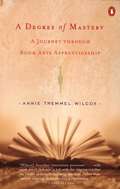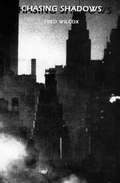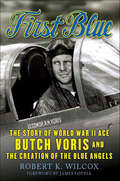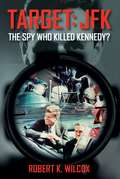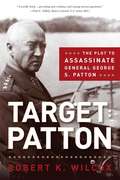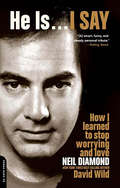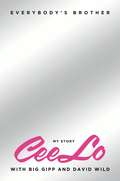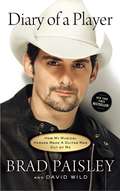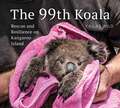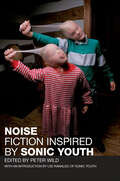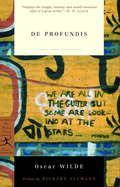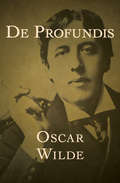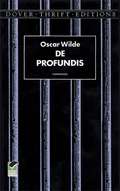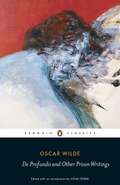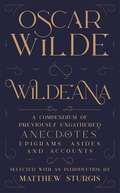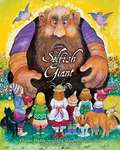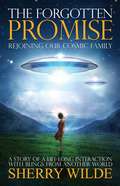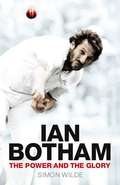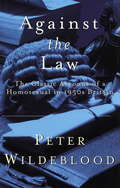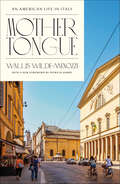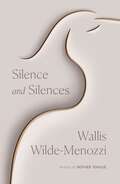- Table View
- List View
Degree Of Mastery: A Journey through Book Arts Apprenticeship
by Annie Tremmel Wilcox<P>FOR BIBLIOPHILES OF ALL STRIPES, AN AFFECTIONATE PAEAN TO THE ART OF BOOKMAKING, AND A POIGNANT TRIBUTE TO A LASTING FRIENDSHIP <P>In this extraordinary memoir, certain to captivate anyone who's ever appreciated the feel of a good book, Annie Tremmel Wilcox deftly explores the artistry, traditions, and precise techniques of bookmaking and book restoration. Using excerpts from her diaries, newspaper articles, exhibit notices, and correspondence, she passionately recounts her experiences learning the art of making and preserving books as the first female apprentice to renowned bookbinder and conservator William Anthony. <P>At once rendering a gorgeous, moving scrapbook of her tutelage under this extraordinary craftsman and expertly demystifying the fascinating technical processes of this centuries-old art form, A Degree of Mastery is a singular achievement certain to enchant book lovers and craftspeople alike.
Chasing Shadows: Memoirs of a Sixties Survivor
by Fred WilcoxCHASING SHADOWS tells the story of a young man who pays a heavy price for pursuing his own dream. When he announces that he intends to be a poet instead of a doctor, his working class family thinks he&’s gone crazy. They send him to psychiatrists who shoot electricity though his brain, warn him that he&’ll never hold a job, and confide that he will suffer from nervous breakdowns all his life. After a stint in a state mental hospital, he spends the &‘60's on the mean streets of New York City, not as a fair-weather hippie with a room of his own in Scarsdale whenever he tires of the hard life, but as a fugitive from everyone, and everything, he once loved.
First Blue: The Story of World War II Ace Butch Voris and the Creation of the Blue Angels
by Robert K. WilcoxRobert K Wilcox's First Blue presents the remarkable story of a true hero of American aviation during World War II.The U.S. Navy's Blue Angels are the most famous flight demonstration team in the world. While millions of aviation enthusiasts see their shows every year, the story of the man who formed the squadron has never been told. He is Roy Marlin "Butch" Voris, a World War II Ace and one of only two aviators ever to command the Blue Angels twice.First Blue details the epic journey of an unassuming man whose strong character and desire to fly launched him into a life of drama, heroism, and accomplishment unique in his field. Because he wanted to serve his country during World War II, a young Butch Voris found himself flying fighter planes as part of the pitifully prepared and outmanned front in the early stages of the Pacific theater. He was nearly killed there but went on to be a leader in one of the most fearsome naval air squadrons in the Pacific. As a pilot, Butch is unquestionably in the same class as more recognized aviator heroes such as Chuck Yeager and Pappy Boyington.While his World War II experience alone could comprise a book, Butch may be best known for his efforts in the creation of the naval air demonstration team, the Blue Angels. After the war, Voris was personally chosen by Admiral Nimitz to start the Blue Angels and to lead them, first in prop planes and later in jets. The story of his efforts is as exciting as it is inspirational, and it's told here in meticulous detail and with great humor. Today the Blue Angels still follow traditions established by Butch.Butch's involvement in military flight didn't end with the Blue Angels; he became a major player in the development of the F-14 Tomcat and NASA's Lunar Explorer Module for Grumman. Butch dedicated his life to his work, and here, finally, is the remarkable, untold account of this true American aviation pioneer and hero: a man whose life had unparalleled influence on naval aviation and whose legacy continues to inspire millions of Americans each year.
Target JFK: The Spy Who Killed Kennedy?
by Robert K. WilcoxHe was born in Buenos Aires and educated in Geneva and Cuba. He was a daring WWII paratrooper who parachuted behind enemy lines on D-Day. He was a handsome, charming man who briefly worked as a Hollywood stuntman.He was also a spy who may have killed John F. Kennedy.The shocking new book Target JFK reveals page-after-page of incredible, never-before-reported evidence that a mysterious Argentinian with a stranger-than-fiction life story is the missing link in the assassination mystery that has puzzled America for half a century.
Target Patton: The Plot To Assassinate General George S. Patton
by Robert K. WilcoxThe death of General George S. Patton is shrouded in mystery. While officially the result of an unfortunate car accident, the evidence points to a far more malevolent plot: murder. So says investigative and military journalist Robert K. Wilcox in his book: "Target: Patton: The Plot to Assassinate General George S. Patton." Written like a WWII spy thriller and meticulously researched, "Target: Patton" leads you through that fateful December day in 1945, revealing a chilling plan to assassinate General Patton. Backing up this shocking story with facts, photos, and eyewitness statements, Wilcox reveals long-hidden documents and accounts that explain how secrets Patton knew--and his strong anti-Soviet views--may have cost him his life.
He Is . . . I Say: How I Learned to Stop Worrying and Love Neil Diamond
by David WildHe Is...I Say examines Neil Diamond's singular place in the pantheon of popular music. David Wild-who has written about Diamond for Rolling Stone, penned the liner notes to a number of Diamond's anthologies, and produced Diamond's scandal-free episode of Behind the Music. Now he dares to turn on his "Heartlight," offering a moving and hilarious salute to his own Jewish Elvis based on his past interviews with the Solitary Man himself.An illuminating snapshot of a beloved American icon, He Is...I Say endearingly speaks to the condition of being a Diamondhead in a hipper-than-thou world, while fully illustrating exactly what it is that makes the man and the artist so special.
Everybody's Brother
by David Wild Big Gipp Ceelo GreenHe inspires awe with his colorful costumes and helps ordinary people find a Voice. With vocals so effective (in fact, they're almost otherworldly), he turned a four-letter word into a global phenomenon. Without a doubt, CeeLo Green is a superhero of soul-and every superhero has an origin story. This story begins in The Dirty South, where South Atlanta's native son transformed himself into the Abominable SHOWman. Along the way, innocence was lost; farther down the path, his parents passed on. Yet he still found family at the Dungeon with the likes of Goodie Mob, Outkast, L.A. Reid, and Lauryn Hill. Then one day he teamed up with Danger Mouse and everything went "Crazy." Everybody's Brother is the untold story of CeeLo Green's rise from the streets of Atlanta to the top of the charts-a story so cool, so complex that his brother-from-another-mother, Big Gipp, couldn't help but chime in. Now CeeLo gives his fans what they've been waiting for: an all-access pass into his perfectly imperfect piece of mind.
Diary of a Player
by David Wild Brad PaisleyThis book is the very personal story of how Brad Paisley came of age as a musician and a man. Focusing on what it means to play the guitar and how he found his voice through a series of guitars, the book will also share what he has learned about life along the way. Beginning with his own very personal love letter to the guitar and what the instrument has meant in his life as a way to find his voice in the world, the book then moves into a musical, but personal, diary. Brad tells the story of his own musical passion, while writing loving salutes and sharing memorable tales about all the great players in country, blues, and rock & roll who have inspired him over the years.As he wrote in liner notes of his instrumental guitar album, Play, his first guitar was a gift from his grandpa when Brad was only eight. Brad quickly learned that no matter how he changed and evolved, the guitar was his only real constant. When life gets intense, he says, "there are some people who drink, who seek counseling, eat, or watch TV, cry, sleep, and so on. I play." Included in the book will be sidebars from a wide array of musical stars who know and love Brad. In these sidebars, this host of guitar and musical gods will share their take on Brad or stories of their favorite memories about him.
The 99th Koala: Rescue and resilience on Kangaroo Island
by Kailas WildIn last summer&’s devastating fires, Kangaroo Island lost half of its koala population, with many more left injured and starving. This is the inspiring and sometimes confronting story of someone who went to help and ended up a koala dad. When Kailas Wild – arborist by trade and conservationist at heart – heard that there were injured koalas on Kangaroo Island who could only be reached by a tree climber, he drove 1500 kms to volunteer. Seven weeks later, he had crowd-funded sixty-five thousand dollars, participated in the rescue of over 100 koalas and had formed a special bond with a baby koala – Joey Kai. His social media postings gained tens of thousands of views and press attention around Australia and overseas, including the BBC, The Times (London), The New York Times and The Daily Mail. The 99th Koala shares that experience, in words and pictures, and introduces us to some of the koalas of Kangaroo Island. Sometimes tragic, sometimes hopeful, Kai&’s story above all commemorates our unique wildlife, and demonstrates the power of one person trying to make a difference. &‘At a time when many people have felt helpless to act against the immensity of the fires or the threat of climate change, Kai's daily descriptions and videos of saving helpless animals have been a welcome dose of personal courage and deep humanity.&’ ABC
Noise: Fiction Inspired by Sonic Youth
by Peter WildFor more than twenty-five years, the antimelodic “noise” of Sonic Youth has assaulted us, exhilarated us, inspired us. Why?Katherine Dunn says it's because they operate in the foggy world between the real and the surreal. Mary Gaitskill says that Sonic Youth caught her, years ago, when she was falling. J. Robert Lennon says it's because Sonic Youth rip it apart. Emily Maguire was hooked because once she was in love with chaos. Their sound is caustic, elemental, nihilistic—and quite unlike any other cult band ever to achieve rock godhood. In Noise, twenty-one great literary voices offer short fiction based on or inspired by songs from Sonic Youth—a raucous coupling of music and literature featuring marrow-colored goo, severed hands and abandoned babies, Patty Hearst watching the apocalypse on TV, and other unruly images of the Zeitgeist.Contributors Hiag Akmakjian • Christopher Coake • Katherine Dunn • Mary Gaitskill • Rebecca Godfrey • Laird Hunt • Shelley Jackson • J. Robert Lennon • Samuel Ligon • Emily Maguire • Tom McCarthy • Scott Mebus • Eileen Myles • Catherine O'Flynn • Emily Carter Roiphe • Kevin Sampsell • Steven Sherrill • Matt Thorne • Rachel Trezise • Jess Walter • Peter Wild
De Profundis
by Oscar WildeDe Profundis (Latin: "from the depths") is a letter written by Oscar Wilde during his imprisonment in Reading Gaol, to "Bosie" (Lord Alfred Douglas).
De Profundis
by Oscar Wilde1911. Wilde, Irish poet and dramatist whose reputation rests on his comic masterpieces Lady Wintermere's Fan and The Importance of Being Earnest. De Profundis was written from Wilde's prison cell at Reading Gaol to his friend and lover Lord Alfred Douglas. It explodes the conventions of the traditional love letter and offers a scathing indictment of Douglas's behavior, a mournful elegy for Wilde's own lost greatness, and an impassioned plea for reconciliation. At once a bracingly honest account of ruinous attachment and a profound meditation on human suffering. See other titles by this author available from Kessinger Publishing.
De Profundis: Large Print
by Oscar WildeOscar Wilde’s autobiographical work on suffering, self-realization, and the artistic processDe Profundis (Latin for “from the depths”) is Oscar Wilde’s reconciliation from a life full of pleasure. In 1891 the author began an intimate relationship with the young aristocrat Lord Alfred Douglas, known to his friends as Bosie. This affair led to speculations about Wilde’s sexuality just as his career was reaching its apex. Ultimately, Bosie’s father, the powerful Marquess of Queensberry, accused Wilde of homosexuality. As this conduct was considered a “gross indecency” punishable by hard labor, this was a serious charge, and one that ultimately landed Wilde in prison. It wasn’t until January of 1897 that Wilde began to write from his cell. De Profundis, a scathing indictment of his former lover, is the letter that Wilde wrote to Bosie from prison. In addition to detailing the wrongs visited on Wilde by Bosie and his family, De Profundis traces the spiritual growth that Wilde experiences in prison. Having lost everything he holds dear, Wilde transforms his hardship into art. This ebook has been professionally proofread to ensure accuracy and readability on all devices.
De Profundis: Large Print (Dover Thrift Editions: Literary Collections)
by Oscar WildeRenowned as a wit, poet, dramatist and one of the great conversationalists of his age, Oscar Wilde (1854–1900) nevertheless fell victim to the forces of repression and prudery in late Victorian England. As a result of his affair with Lord Alfred Douglas, Wilde was found guilty of homosexual offenses and jailed for two years.While in prison, he wrote De Profundis, a long and bitter letter of recrimination addressed to Douglas. In it, he accuses Douglas of shallowness, selfishness, greed, gross interference with his [Wilde's] artistic efforts and other faults and wrongdoing. Nevertheless, it is clear from this letter that Wilde deeply loved Douglas and still harbored strong feelings for him, in spite of Douglas' role in Wilde's downfall. While the letter is a touching cri de coeur that offers fascinating insights into Wilde's life in prison and the background and psychology of a notorious affair, its eloquence, passion, and literary excellence raise it above the level of the purely personal. Instead, it becomes a universal statement about love, injustice and the pain of living in the world.
De Profundis and Other Prison Writings
by Oscar WildeDe Profundis and Other Prison Writings is a new selection of Oscar Wilde's prison letters and poetry in Penguin Classics, edited and introduced by Colm Tóibín.At the start of 1895, Oscar Wilde was the toast of London, widely feted for his most recent stage success, An Ideal Husband. But by May of the same year, Wilde was in Reading prison sentenced to hard labour. 'De Profundis' is an epistolic account of Oscar Wilde's spiritual journey while in prison, and describes his new, shocking conviction that 'the supreme vice is shallowness'. This edition also includes further letters to his wife, his friends, the Home Secretary, newspaper editors and his lover Lord Alfred Douglas - Bosie - himself, as well as 'The Ballad of Reading Gaol', the heart-rending poem about a man sentenced to hang for the murder of the woman he loved. This Penguin edition is based on the definitive Complete Letters, edited by Wilde's grandson Merlin Holland. Colm Tóibín's introduction explores Wilde's duality in love, politics and literature. This edition also includes notes on the text and suggested further reading. Oscar Wilde was born in Dublin. His three volumes of short fiction, The Happy Prince, Lord Arthur Savile's Crime and A House of Pomegranates, together with his only novel, The Picture of Dorian Gray, won him a reputation as a writer with an original talent, a reputation enhanced by the phenomenal success of his society comedies - Lady Windermere's Fan, A Woman of No Importance, An Ideal Husband and The Importance of Being Earnest. Colm Tóibín is the author of five novels, including The Blackwater Lightship and The Master, and a collection of stories, Mothers and Sons. His essay collection Love in a Dark Time: Gay Lives from Wilde to Almodovar appeared in 2002. He is the editor of The Penguin Book of Irish Fiction.
De Profundis and Other Writings
by Oscar Wilde'I have nothing to declare,' Wilde once told an American customs official, 'except my genius.' A good part of that genius is evident in the essays and poems included in this volume. There is the intellectual genius of "The Soul of Man under Socialism", in which he clearly foresaw the dangers of economic bureaucracy and state-worship: for Wilde, socialism meant liberation and individuality, not enslavement. Then there is the emotional genius of "De Profundis", the long, introspective and often hostile letter he addressed to Lord Alfred Douglas from prison. And there is the poetical genius of "The Ballad of Reading Gaol", in which Wilde's generous nature could movingly express for another's misery the sorrow he found it hard to express for his own. This collection contains, too, many examples of that humorous and epigrammic genius which captured the London theatre and which, by suddenly casting light from an unexpected angle, widened the bounds of truth. Show More Show Less
Wildeana (riverrun editions)
by Oscar WildeOscar Wilde's early fame ensured that throughout his short life he was written about by many of those he met. He was celebrated - or mocked - as the master of the ingenious epigram, the provocative paradox, the witty aside or the extravagant conceit. In researching his monumental biography of Wilde Matthew Sturgis found, in every major archive, sheets of foolscap in Wilde's distinctive handwriting, setting down a series of unfamiliar epigrams - unpublished try-outs. There were fascinating new discoveries. He uncovered dozens of unfamiliar and previously ungathered anecdotes about Wilde: sidelights on his days in Oxford, London, America and Paris and beyond, by society hostesses, men-about-town, actors, lawyers, minor litterateurs, artists and politicians, diligently setting down his actions, his mannerisms and above all his sayings.The items in this volume are all small additions to the Wilde story: some unfamiliar, others unexpected, they enrich and alter the picture of his life.
Oscar Wilde's The Selfish Giant
by Oscar Wilde Mary Hollingsworth Bill BellAfter seven years, the Giant has nothing left to say to his friend the Cornish ogre, and so he returns home to his castle—only to find that in his absence, the children have been playing in his beautiful garden. At once the selfish Giant builds a high wall to keep the children out of the garden. Winter turns into Spring all over the country—but not in the selfish Giant's garden. Across the country Spring turns into Summer and then to Autumn—but in the selfish Giant's garden, the trees refuse to bloom and the birds refuse to sing; they miss the children. The selfish Giant lies shivering in his large bed while Hail, Snow, North Wind, and Frost dance across the garden. But one morning the Giant hears a beautiful noise—what could it be?An unexpected ending gives the story a poignant, wistful quality, and Bill Bell's dazzling illustrations breathe new life into this classic tale. And adults familiar with Oscar Wilde's work will enjoy seeing this gentler, softer side of Wilde. The Selfish Giant is a beautiful book for parents and children to read together during any season.
The Forgotten Promise: Rejoining Our Cosmic Family
by Sherry WildeThis is the story of one woman's life-long interaction with beings from another world, and her journey to go beyond the fear to find meaning and purpose. In this book she explores the abduction experience and shares with you the three important things they insisted she learn. It is the author's belief that most people in this world have had at least one encounter with a being from another dimension or planet. Trying to integrate these kinds of events into your life, and still live what the world would consider a normal life, is pretty much impossible. This book is not only a recounting of her experiences, but the story of how she discovered that, like most things, it is possible to turn the worst thing in your life into something positive, just by choosing to look at it from a different perspective.
Ian Botham
by Simon WildeIan Botham arrived on the international scene just in time to ride sport's first big financial wave and exploit the Thatcherite mantra of go-out-and-get-what-you-want. He certainly needed the cash, having been regularly short since leaving state school in Yeovil at 15. In an era short on glamour and personalities, Botham brought an irresistible cocktail of talent, energy and swagger. With the stench of economic failure still in the air, he made the country feel good about itself again. He showed that Britain could still produce champions and that the working class still deserved to be valued. For this he won himself a fund of public goodwill, a fund he sometimes threatened to drain but uncannily managed to replenish. Before Botham, many saw cricket as a very staid, very boring game. He played it with an irreverent dash that stuck up two fingers at the cricket Establishment. He wore striped blazers and strange hats, sported long hair and droopy moustaches. He got into trouble over punch-ups, drugs and girls. He was even banned from playing at one point. But all this would have meant little had he not been able to keep on achieving remarkable things - as he did with impeccable timing and implausible frequency. He had an insatiable appetite, and an uncanny knack, for creating tales of heroism, but if he failed on that score there was always the chance of a scandal or two. He gave the media everything they needed for front pages and back, and some newspapers discovered that it didn't necessarily matter if the story was true or not, as long as he was in it. Ian Botham tells the story a great piece of British sporting history, one of the greatest: of a man for whom the glamour and the grit came together. And it was the grit of the times in which Botham had grown up, and the grit of the where he had come from.
Against The Law
by Peter Wildeblood'This right which I claim for myself and for all those like me is the right to choose the person whom I love' Peter WildebloodIn March 1954 Peter Wildeblood, a London journalist, was one of five men charged with homosexual acts in the notorious Montagu case. Wildeblood was sentenced to eighteen months in prison, along with Lord Montagu and Major Michael Pitt-Rivers. The other two men were set free after turning Queen's Evidence.Against the Law tells the story of Wildeblood's childhood and schooldays, his war service, his career as a journalist, his arrest, trial and imprisonment, and finally his return to freedom. In its honesty and restraint it is eloquent testimony to the inhumanity of the treatment of gay men in Britain within living memory.
Against The Law
by Peter Wildeblood'This right which I claim for myself and for all those like me is the right to choose the person whom I love' Peter WildebloodIn March 1954 Peter Wildeblood, a London journalist, was one of five men charged with homosexual acts in the notorious Montagu case. Wildeblood was sentenced to eighteen months in prison, along with Lord Montagu and Major Michael Pitt-Rivers. The other two men were set free after turning Queen's Evidence.Against the Law tells the story of Wildeblood's childhood and schooldays, his war service, his career as a journalist, his arrest, trial and imprisonment, and finally his return to freedom. In its honesty and restraint it is eloquent testimony to the inhumanity of the treatment of gay men in Britain within living memory.
Mother Tongue: An American Life in Italy
by Wallis Wilde-MenozziA probing and poetic examination of language, food, faith, and family attachment in Italian life through the eyes of an American who moved to Parma with her husband and family. In the 1980s, the American writer Wallis Wilde-Menozzi moved permanently with her Italian husband and her daughter to Parma, a sophisticated city in northern Italy, where he became a professor of biology. Her search for rootedness in the city that was to be her home introduced her to complexities in her identity as she migrated into another language and looked for links beyond the joys of Verdi, Correggio, and Parmesan cheese, which visitors have rightly extolled for centuries. The local resistance to change perceived as individualistic led Wilde-Menozzi to explore the pull and challenge of difference and discover the backbone she needed for artistic freedom. In Mother Tongue, Wilde-Menozzi offers stories of far-sighted lives, remarkable Parma men and remarkable women, including the Renaissance abbess Giovanna Piacenza, the fighting Donella Rossi Sanvitale, and her own indefatigable mother-in-law. Framed with a new introduction by the author, and a new foreword by Patricia Hampl, this classic on diversity and tolerance, family, faith, and food in Italy and the United States is at once timeless and timely, a “large, beautiful window into the intelligent, literate, reflective life of Italy” (Shirley Hazzard).
Silence and Silences
by Wallis Wilde-MenozziA meditation on the infinite search for meanings in silence, from Wallis Wilde-Menozzi, the author of The Other Side of the Tiber and Mother Tongue.We need quiet to feel nothing, to hear silence that brings back proportion and the beauty of not knowing except for the outlines of what we live every day. Something inner settles. The right to silence unmediated by social judgment. Sitting at a table in an empty kitchen, peeling an apple, I wait for its next transformation. For a few seconds, the red, mottled, dangling skin unwinds what happened to it on earth.Wallis Wilde-Menozzi set out to touch silence for brief experiences of what is real. In images, dreams, and actions, the challenge leads to her heart as a writer. The pages of Silence and Silences form a vast tapestry of meanings shaped by many forces outside personal circumstance. Moving closer, the reader notices intricacies that shift when touched. As the writer steps aside, there is cosmic joy, biological truth, historical injustice. The reader finds women’s voices and women’s silences, sees Agnes Martin’s thin, fine lines and D. H. Lawrence’s artful letters, and becomes a part of Wilde-Menozzi’s examination of the ever-changing self. COVID-19 thrusts itself into the unbounded narrative, and isolation brings with it a new kind of stillness. As Wilde-Menozzi writes, “Reading a book is a way of withdrawing into silence. It is a way of seeing and listening, of pulling back from what is happening at that very moment.” The author has created a record of how we tell ourselves stories, how we think and how we know. Above all, she has made silence a presence as rich as time on the page and given readers space to discover what that means to a life.
